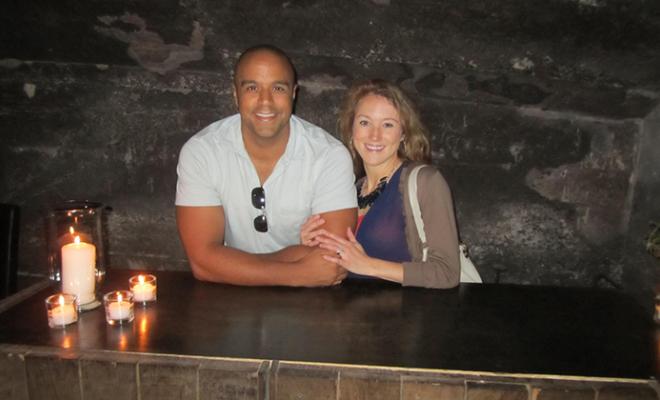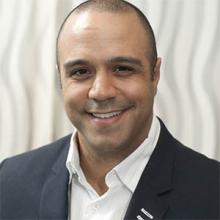We walked out of the intensive care unit (ICU) and turned the corner to walk toward the elevator. After too many days of watching my wife on a ventilator in a chemically induced coma from end-stage cystic fibrosis, I had learned that it was necessary to break for lunch.
The lobby was filled with quiet sobs and red eyes, and one voice rang out: “YOU can't be here!” We were soon blocked by a red-faced man, angrily telling us that this area was closed. He definitely wasn't a staff member and looked like he was ready to throw down. As someone with a lifetime in the martial arts -- as a competitor and an instructor -- I was not about to be intimidated by his antics.
I told him, “We are going to the elevator,” and he directed us to walk around. I asked him why and he told me that his sister had been admitted the day before. She had seemed perfectly healthy days earlier and now the ICU doctors were suddenly saying that she would not likely survive the week. As he calmed a bit, he told us again to “Go around …,” and that his family was in mourning.
I thought that this guy was going to have a tough day if he thought he could stop every person walking through the lobby to visit someone in the ICU, but I told him that we would do so if he showed us the way. As we walked, I mentioned that everybody has a tough story in the ICU. Nobody was there because things were going particularly well, and there would be a lot more family members coming to visit their loved ones that day.
I never told him my story because that didn't matter. His tone started to change as he thanked us and then followed it shortly with an apology. By the time we got to the elevator, he was apologizing, almost profusely. I felt for him even though my wife's prognosis at the time was no better.
In his world, his and his family's pain was worse than any other visitor's. They had the right to the waiting area because they were suffering the most. As the weeks passed, I witnessed this same sentiment at the core of so many conflicts. And nothing good ever resulted when someone compared their pain to the pain of those around them.
Don't get me wrong, it is good to tell stories in an effort to relate to those going through a challenging situation, but a one-up type of discussion misses the entire point, empathy. And, trying to listen with pure empathy is tougher than it sounds.
Months later, my wife Rebecca had beaten the odds and received a life-saving transplant. Back in the ICU because of complications from stomach surgery, she was again on a ventilator, with me worried for her life.
In a nearby housing facility for patients and family, I found myself chatting with an older lady who had asked why I was there. She related quickly because she had experienced ten stomach surgeries. She began to go on and on about how tough hers had been, and she seemed to ask me questions the only intent of which was to frame her story. As she glossed over my explanation of Rebecca's internal bleeding, I began getting frustrated, so I mentioned that the surgery was needed to protect her newly transplanted lungs, which had come just in time to save her life after six months on life support.
With a few quick sentences, I had “won,” she didn't know what to say, and it got a little weird. We were both guilty of trying to one up each other, and suddenly it wasn't about empathy or learning each other's stories; it was a competition to see who suffered more. The reality is that nobody wins any of these competitions and when we let it get to that point, we're expressing that we cannot empathize because we have experienced worse.
The value of these conversations during tough times is to share knowledge and support, and empathize with one another.
We can provide encouragement and support for those dealing with the impacts of medical challenges because we can relate to them on a level that few others can. However, before sharing those experiences, stop to listen and understand first. Even if your experience is worse, that's not the point. During countless months of interacting with caregivers, in-laws, and strangers, I found one approach always works the best -- empathy.


